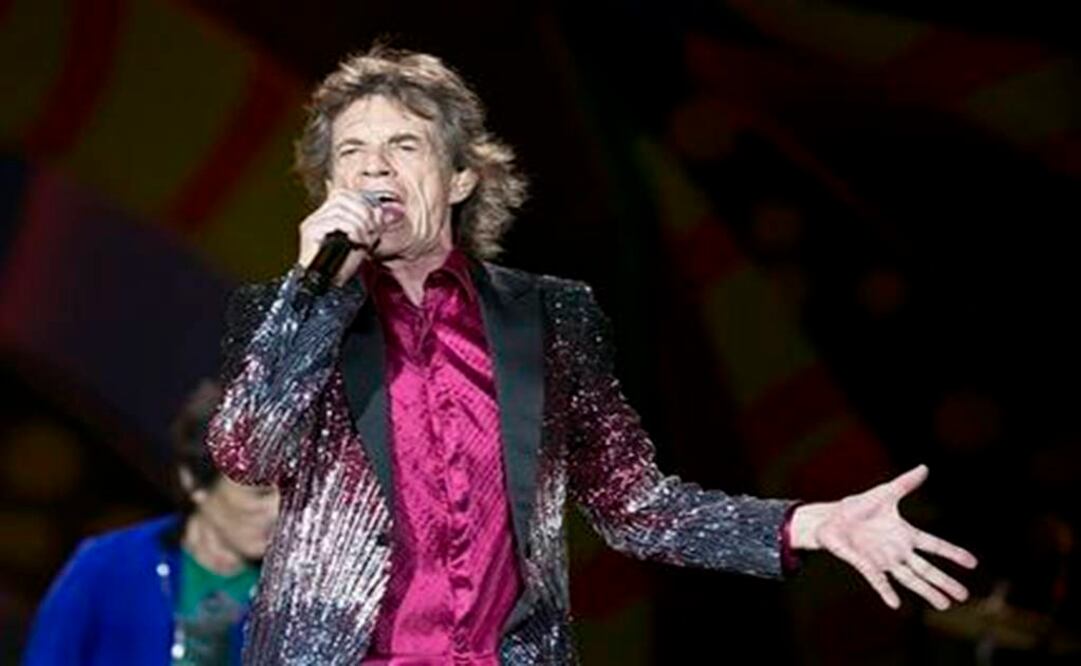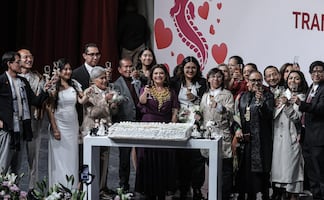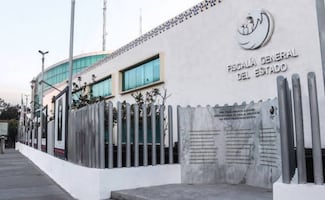Más Información

Marx Arriaga dice que no dejará su cargo en la SEP; llama a una jornada de protesta en defensa de los libros de texto gratuitos

Marx Arriaga, cercano a Beatriz Gutiérrez que se rebeló a Mario Delgado; recuento de su trayectoria y escándalos

Inhabilitan por un año a juez que concedió amparos a Cabeza de Vaca; lo acusan de actuar fuera de la legalidad

San Valentín: Evita fraudes al comprar regalos en línea este 14 de febrero; alertan sobre tiendas falsas y robo de datos

Cultivan más de 15 millones de flores para atender demanda del 14 de febrero en México; las rosas son las más populares

CDHCM confirma liberación de personas detenidas durante manifestación en Reforma; asegura que se les brindó acompañamiento
The Rolling Stones unleashed two hours of shrieking, thundering rock and roll on an ecstatic crowd of hundreds of thousands of Cubans and foreign visitors Friday night, capping one of the most momentous weeks in modern Cuban history with a massive celebration of music that was once forbidden here.
The week opened with the arrival of President Barack Obama in Air Force One, accompanied by more than 1,000 employees of a government that waged a cold war against Cuba for more than 50 years. This time, U.S. forces were armed with briefing books and press invitations, here to seal the president's 2014 opening to Cuba with a string of expertly crafted public events that saw Obama call for democracy live on state television, then attend a Major League Baseball exhibition game with Cuban President Raul Castro.
The week ended with Mick Jagger, Keith Richards, Ronnie Wood and Charlie Watts firing "Jumpin' Jack Flash" ''Sympathy for the Devil" and "Satisfaction" into a jubilant crowd from 3-story-tall high-definition television screens and thumping towers of speakers.
From Sunday evening to late Friday night, it felt as if the full force of the 21st century had landed with bone-rattling impact on an island that still feels mostly cut off from the modern world.
"Havana, Cuba, and the Rolling Stones!" Jagger cried. "This is amazing! It's really good to be here! It's good to see you guys!"
The Stones romped through 18 of their classics, picking up force as the crowd in the open-air Ciudad Deportiva, or Sports City, jumped and chanted "Rollings! Rollings!"
The Rolling Stones were the biggest mainstream rock act to play in Cuba since its 1959 revolution brought a communist government to power and isolated the island from the United States and its allies. At its heyday, Cuba's communist government frowned on U.S. and British bands. Fans had to hide their Beatles and Stones albums in covers borrowed from albums of appropriately revolutionary Cuban groups.
But times have changed. Former supermodel Naomi Campbell, actor Richard Gere and singer Jimmy Buffet partied in the VIP section of the concert. Castro's son Alejandro, one of the driving forces behind Cuba's declaration of detente with the United States, greeted friends and relatives after the show.
Far from the Cuban and international elites, ordinary Cubans said they felt shot through with energy, reconnected with the world.
"After today I can die," said 62-year-old night watchman Joaquin Ortiz. "This is like my last wish, seeing the Rolling Stones."
Rivers of spectators flowed north and south from the concert site after the show, watched over by hundreds, perhaps thousands, of security officials.
Few were willing to comment on the connections between the concert and Obama's visit earlier in the week, but many said the concert had implications beyond simple entertainment.
"The Rolling Stones being in Cuba at this time is like several steps up the ladder," said Jennifer Corchado, a 23-year-old biologist. "It's like three steps up the staircase toward global culture, toward the rest of the world."
Among the spectators was a large contingent of foreign tourists, for whom seeing Cuba was as novel as seeing the Rolling Stones is for Cubans.
Ken Smith, a 59-year-old retired sailor, and Paul Herold, a 65-year-old retired plumber, sailed to Havana from Key West, Florida on Herold's yacht.
"This has been one of my life-long dreams, to come to Cuba on my sailboat," Herold said.
Some Cuban concert-goers said it made them more optimistic about the future of their country.
"This is history," said Raul Podio, a 22-year-old employee of a state security firm, who was joined by a group of young friends. "I would like to see more groups, for there to be more variety, for more artists to come, because that would mean we are less isolated."
The band's Cuba stop ended its "Ole" Latin America tour, which also included concerts in Brazil, Uruguay, Chile, Argentina and Mexico.
Noticias según tus intereses
[Publicidad]
[Publicidad]








